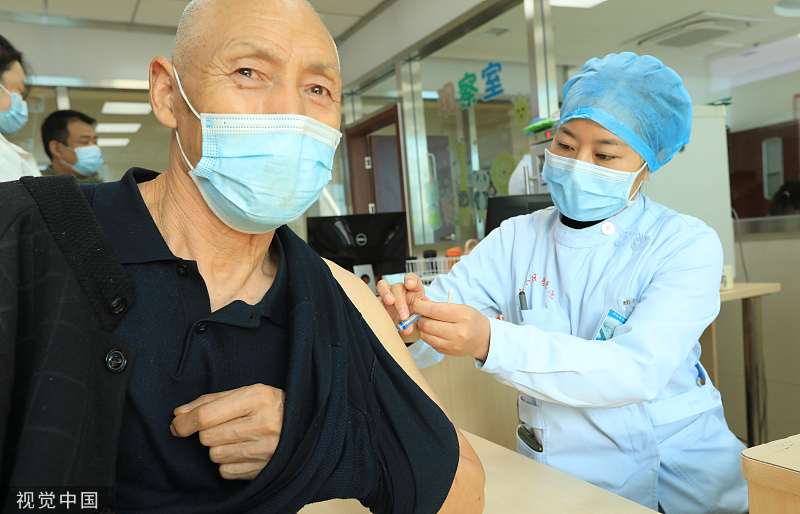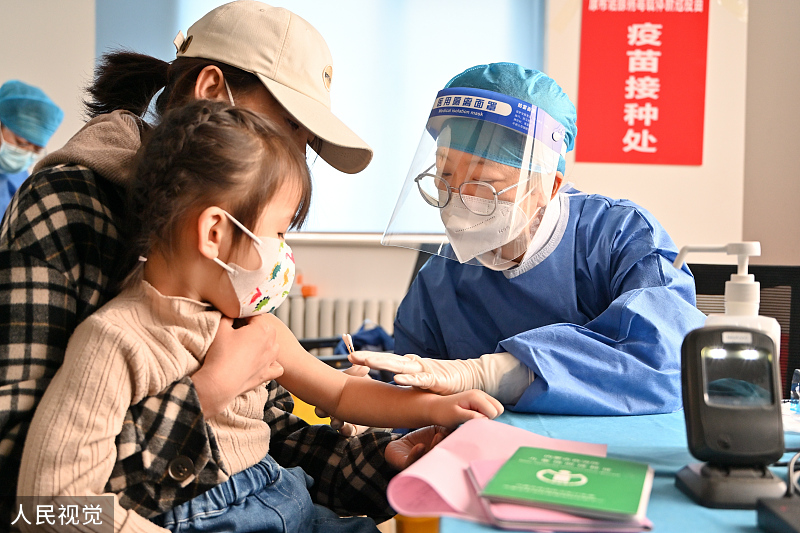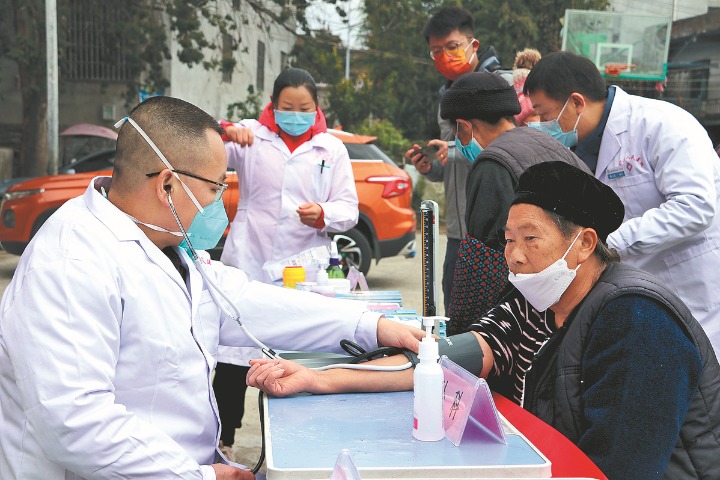Q&A: How to protect vulnerable populations from COVID

After fighting the COVID-19 for three years, China is adjusting its pandemic response measures to minimize the impact on people's normal lives.
Despite of its weakening virulence, the novel coronavirus still poses a threat to the health of vulnerable populations such as the elderly and people with chronic diseases.
Experiences from around the world prove that increasing the vaccination rates among seniors and people with preexisting health conditions is crucial for humanity to win the combat against COVID-19.
But still, many people have some concerns: Is the vaccine still potent enough to protect us from the new variants? Should I take the booster shots?
To address the concerns, a research team led by Zhang Wenhong from the infectious disease department at Huashan Hospital Affiliated to Fudan University answered some of the most asked questions.
Q: How long can the vaccines protect us? Can the vaccines offer protection against the new variant?
A: Studies show the level of antibodies against the novel coronavirus will increase remarkably in the first 28 days after a person receives two doses of vaccines. However, the level of neutralizing antibodies will gradually drop over time, especially after six months.
A booster shot can improve the level of neutralizing antibodies against the virus, especially against the Omicron variant, which has a strong immunity-evading ability.
A research conducted by our team showed that a third shot can significantly boost the immunogenicity against subvariants of Omicron such as BA.1, and BA.4, and BA.2.75.

Q: If I still get infected after getting vaccinated, does it mean the vaccine is useless?
A: Though vaccination may not prevent one from getting infected by the virus, it can reduce the risk of developing into severe cases.
As for the rate of severe cases of children and seniors, which are deemed more susceptible to the virus, here are a group of numbers.
Among the over 10,000 people who died of COVID in Hong Kong this year, only 10 were aged 11 or younger, with a mortality rate of 0.006 percent.
As for the elderly, during the outbreak that hit Shanghai in the first half of this year, a research targeting people infected with Omicron variant showed the risk of developing into a severe case dropped by 76 percent for the elderly who have received primary vaccination or a booster shot, compared with those unvaccinated or only have received one injection.
Data cited by Wang Fusheng, an academician with the Chinese Academy of Science at a news conference held by the State Council joint prevention and control mechanism in July, showed that those aged older than 60 who have fully vaccinated had a 89 percent percent lower risk of developing severe symptoms than those unvaccinated.
Data also showed the United States has a higher COVID-19 death rate than the United Kingdom and Germany because of a lower rate of vaccination.
Statistics published by the Journal of the American Medical Association in Nov 18 showed the US had a vaccination rate of 63 percent, compared with 71 percent for the UK and Germany.
And among every 10,000 people in the US, an average of 50.6 people died of Omicron variant, compared with 28.9 for the UK and 22.7 for Germany.
Q: Is it safe for people with chronic diseases and elderly people to receive vaccination?
A: Generally speaking, COVID vaccines are safe.
As May 30, a total of 338 million doses of COVID-19 vaccines had been administered on the Chinese mainland, and the incidence rate of adverse reaction was 70.45 per 1 million, slightly lower than commonly seen vaccines such as hepatitis B vaccine and polio vaccine.
Global studies also show that vaccination is safe for people with chronic diseases such as hypertension, diabetes, and obesity as well as for seniors, pregnant women and breastfeeding women.
The Strategic Advisory Group of Experts on Immunization (SAGE) of the World Health Organization recommended the above-mentioned groups to receive COVID-19 vaccines.
Please feel free to contact us by sending your questions to question@chinadaily.com.cn or commenting on China Daily app. We will ask experts to answer them.














